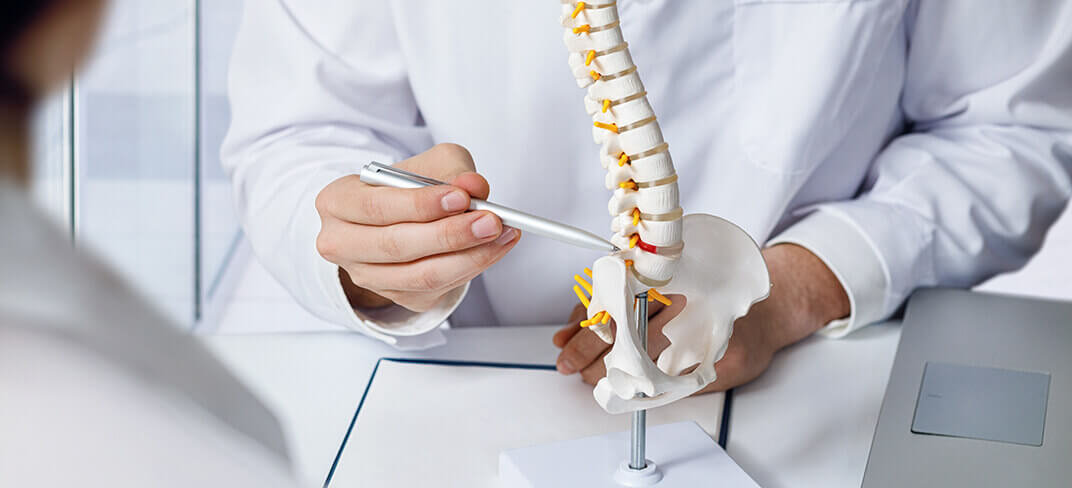
Pain Management Services
UPMC's pain management specialists can help you manage pain, whether it's acute or chronic. Acute pain comes on suddenly and is often from a specific injury or condition. Chronic pain is daily pain lasting at least three months, according to the International Association for the Study of Pain. Most acute pain resolves quickly with standard therapies and the passage of time. But untreated acute pain can sometimes evolve into or cause chronic pain conditions. Chronic pain, typically, is pain that hasn't responded to healing or standard therapies. Pain comes from many conditions — an injury, a surgery, or a health problem such as low back pain or cancer. Uncontrolled long-term pain can have a chronic impact on quality of life. Pain management and treatment is an important component of the services UPMC provides to its patients.
Specialists at UPMC Aut Even Hospital, UPMC Kildare Hospital, and UPMC Whitfield Hospital may be able to help reduce your pain with proven treatments. Our experts can diagnose your pain and assign you a tailored treatment plan.
Contact our Pain Management Services
To make an appointment, please request a referral from your GP. We offer pain management at the following UPMC locations:
Our locations are close to major road networks and public transport routes. Find out more about travelling to UPMC.
Pain Management Conditions we Treat
UPMC pain management consultants are highly experienced professionals. Our specialists test and analyse patient cases to find the right diagnosis and treatments to resolve pain. The clinic provides treatment for patients suffering from:
- Acute pain: Pain that comes on quickly due to a specific cause.
- Chronic pain: Pain that lasts more than three months.
- Neuropathic pain: Pain coming from the nervous system.
- Persistent post-surgical pain: Pain that is still occurring three to six months after surgery.
- Back, neck, and leg pain: Pain that may be due to an injury or other condition.
- Facial pain: Pain affecting the facial muscles.
- Musculoskeletal pain: Pain of the bones, joints, ligaments, tendons, or muscles.
Specialised Pain Management at UPMC
Complex pain problems rarely have a simple, single fix. UPMC pain management specialists adopt a multidisciplinary approach. They work collaboratively with general practitioners, specialists, and patients. Their aim is to reach the best possible outcome. Treatments offered by pain management include:
- Epidural injections to treat back pain. Consultants inject anti-inflammatory drugs directly into the area around the spinal cord. This treatment may reduce pain in the lower spine, hips, and down the leg.
- Facet joint injections and blocks are treatments for low back pain of the facet joint. Doctors inject drugs into the joint to treat pain and inflammation.
- Doctors perform facet rhizotomies to cut the nerves connecting a painful area to the spinal cord.
- Doctors use intrathecal reservoir implants to reduce pain. During this surgery, a doctor places a pump that delivers pain medicine and drugs to the spinal cord. Available in UPMC Whitfield Hospital.
- Nerve or nerve plexus blocks are pain control procedures. They inhibit the pain signals travelling from the nerves to the brain for hours to months.
- Neuromodulation is the use of electrical stimulation to treat chronic pain. Doctors can use it on the nerves, brain, or spinal cord. Available in UPMC Whitfield Hospital.
- Radiofrequency procedures, including lesioning are minimally invasive procedures. Doctors use them to block the transmission of pain signals to the brain.
- Doctors use selective nerve root injections to treat pain. They introduce pain drugs and anti-inflammatories into the space around the nerve root. The nerve root is where a nerve leaves the spinal cord.
- Platelet Rich Plasma (PRP) is a treatment that uses a patient's own blood cells to improve healing in a specific area. PRP can be injected into an injured area or inflamed tissue and is used by doctors to help manage and reduce pain. Available in UPMC Whitfield Hospital.
- Pain specialists may use botox to alleviate migraines and other headaches. Botox is a non-invasive treatment and may help reduce the intensity of migraine.
Why Choose UPMC for Pain Management
UPMC's pain management experts are ready to help patients suffering from acute and chronic pain. From diagnosis to treatment, our expert care team develops a personalised treatment plan. Our consultants perform thorough and adequate testing, give a solid diagnosis, and provide treatments that may help reduce pain.
Additionally, we are long term partners of the HSE (Health Service Executive) and private insurers. UPMC works diligently to ensure everyone has access to high-quality healthcare, delivered in a timely fashion.

